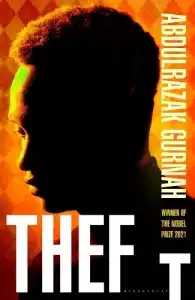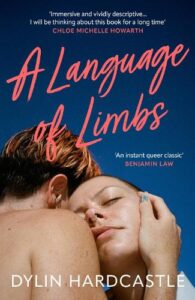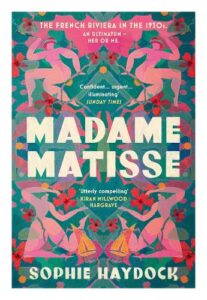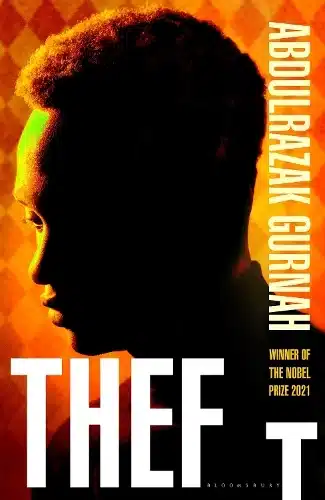 Back from Stockholm (more of which later in the week) with March’s second batch of new fiction. I’ve already read Theft, Abdulrazak Gurnah’s first novel since winning the 2021 Nobel Prize for Literature. Described as ‘one of the world’s most prominent postcolonial writers’ by the chairman of the Nobel committee, Gurnah continues to explore that theme through three young people in 1990s Zanzibar whose lives become closely intertwined: bright, ambitious Karim, who falls in love with Fauzia, and forms a friendship with Badar, a servant in his stepfather’s household with an oddly ambiguous position. Themes of family and obligation underpin the narrative with postcolonial Zanzibar providing the backdrop, now a destination for tourists with its beautiful archipelago. From its title onwards, Theft is a subtle, many-layered piece of fiction which offers a great deal to think about. Review to follow…
Back from Stockholm (more of which later in the week) with March’s second batch of new fiction. I’ve already read Theft, Abdulrazak Gurnah’s first novel since winning the 2021 Nobel Prize for Literature. Described as ‘one of the world’s most prominent postcolonial writers’ by the chairman of the Nobel committee, Gurnah continues to explore that theme through three young people in 1990s Zanzibar whose lives become closely intertwined: bright, ambitious Karim, who falls in love with Fauzia, and forms a friendship with Badar, a servant in his stepfather’s household with an oddly ambiguous position. Themes of family and obligation underpin the narrative with postcolonial Zanzibar providing the backdrop, now a destination for tourists with its beautiful archipelago. From its title onwards, Theft is a subtle, many-layered piece of fiction which offers a great deal to think about. Review to follow…
There have been many novels written about the AIDS pandemic but I think Anthony Passeron’s autofiction, Sleeping Children, is the first French one I’ve come across. In 1981, a Parisian doctor is presented with a case of what will come to be known as HIV/AIDS while in rural France another epidemic grips a small village as young people succumb to heroin addiction, one of whom is Passeron’s uncle. These two narratives become interwoven as more is learnt about this frightening new virus and how it is passed on. ‘Sleeping Children is a moving and eye-opening book about shame and the slow poisoning of a family by the secrets it keeps. Exploring the stories of the heroic few who fought for a cure for AIDs and for justice for a community abandoned, it is a radical vision of a history reshaped, retold and remembered’ says the blurb of a book which sounds well worth investigating.
 Opening in 1972, Dylin Hardcastle’s A Language of Limbs follows two teenage girls, who must decide whether to explore their sexuality or supress it, over three decades spanning Australia’s first Mardi Gras and the AIDS pandemic. ‘A Language of Limbs is about love and how it’s policed, friendship and how it transcends, and hilarity in the face of heartbreak. A celebration of queer life in all its vibrancy and colour, this story finds the humanity in all of us and demands we claim our futures for ourselves’ says the blurb. This one’s from Verve Books from whose list I read several gems last year.
Opening in 1972, Dylin Hardcastle’s A Language of Limbs follows two teenage girls, who must decide whether to explore their sexuality or supress it, over three decades spanning Australia’s first Mardi Gras and the AIDS pandemic. ‘A Language of Limbs is about love and how it’s policed, friendship and how it transcends, and hilarity in the face of heartbreak. A celebration of queer life in all its vibrancy and colour, this story finds the humanity in all of us and demands we claim our futures for ourselves’ says the blurb. This one’s from Verve Books from whose list I read several gems last year.
I didn’t get around to Sophie Haydock’s The Flames about Egon Schiele’s muses, probably because I’m not very keen on his  work, although that didn’t stop me enjoying Naomi Wood’s Mrs Hemingway. Haydock’s new novel, Madame Matisse, does something similar with another artist, exploring the lives of Matisse’s daughter, his wife of nearly forty years and an orphan who fled Russia after the death of her mother. ‘Based on a true story, Madame Matisse is a stunning novel about drama and betrayal; emotion and sex; glamour and tragedy, all set in the hotbed of the 1930s art movement in France. In art, as in life, this a time when the rules were made to be broken…’ according to the blurb which makes me feel a little lukewarm but certainly interested enough to give it a try.
work, although that didn’t stop me enjoying Naomi Wood’s Mrs Hemingway. Haydock’s new novel, Madame Matisse, does something similar with another artist, exploring the lives of Matisse’s daughter, his wife of nearly forty years and an orphan who fled Russia after the death of her mother. ‘Based on a true story, Madame Matisse is a stunning novel about drama and betrayal; emotion and sex; glamour and tragedy, all set in the hotbed of the 1930s art movement in France. In art, as in life, this a time when the rules were made to be broken…’ according to the blurb which makes me feel a little lukewarm but certainly interested enough to give it a try.
 It’s the ten-part sequence set around Cliftonville Circus where five roads meet in North Belfast, that attracts me to Paul McVeigh’s short story collection, I Hear You, written specifically for BBC Radio 4. The location is a stone’s throw away from the Ardoyne, where McVeigh grew up, an area often at the centre of the Troubles. ‘Each road leads to a different area – a different class – a different religion. The Circus explores where old Belfast clashes with the new around acceptance, change, class and diversity. But this is 2024 and a fresh energy exists’ says the blurb of what sounds like an interesting collection which includes several other stories besides The Circus.
It’s the ten-part sequence set around Cliftonville Circus where five roads meet in North Belfast, that attracts me to Paul McVeigh’s short story collection, I Hear You, written specifically for BBC Radio 4. The location is a stone’s throw away from the Ardoyne, where McVeigh grew up, an area often at the centre of the Troubles. ‘Each road leads to a different area – a different class – a different religion. The Circus explores where old Belfast clashes with the new around acceptance, change, class and diversity. But this is 2024 and a fresh energy exists’ says the blurb of what sounds like an interesting collection which includes several other stories besides The Circus.
That’s it for March’s new fiction. As ever, a click on a title will take you to a more detailed synopsis should you want to know more, and if you’d like to catch up with part one it’s here. Paperbacks soon…

